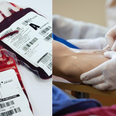We asked for your sexual health queries the other week and now we have the answers for you.
Sexual health worries don’t usually constitute good pub talk – especially if they’re your own. As a guy it’s often harder to speak to a doctor about what’s going on ‘down there’ and ignoring the issue can sometime lead to a very personal problem. Here, Dr Gigi Taguri from Lloyds Online Doctor is answering as many of your sexual health concerns as she can handle, so read on for answers to those questions you’ve dared to ask.
I have a wart under my scrotum – can I get it removed? Does this mean I have HPV?
Several of you have written in about genital warts which are difficult to discuss in person, and can understandably cause some psychological upset. However, genital warts are actually one of the most common and easily treatable STIs- so try not to worry too much and read my warts and all guide to find out how to handle this:
Are they definitely warts?
First of all I would say, make sure you have genital warts – some men can get them confused with pearly penile papules (PPP) which are tiny, fluid-filled little spots on the head of the penis which are about 1mm-3mm across. PPP poses absolutely no threat to health, and shouldn’t cause any pain or irritation. Genital warts are normally larger, and can be found in small clusters, or just as one wart. See your GP if you’re concerned.
Does HPV cause warts?
Genital warts are caused by the human papilloma virus (HPV) which is also responsible for the verrucas and warts found on hands and feet. Most people with the HPV infection don’t even know about it, and it often clears up on its own before any symptoms appear. Sometimes warts can crop up months or even years after contracting HPV so it can be hard to know from whom, or how you contracted the virus. It’s also worth knowing that genital warts can still be contracted even if you are wearing a condom and they aren’t always contracted through sex. However this is the most likely reason for their occurrence as there are around 30 different types of HPV that can live in and around the genital area.
What can I do if they are warts?
Genital warts can be easily spread during penetrative sex, oral sex and by sharing sex toys so it is important to tell your partner about the infection and avoid having sex while you receive treatment. There are two main types of treatment for genital warts which are topical (applying a cream, lotion or chemical to the warts) or surgical removal (destroying the warts by freezing, heating or removing them). Creams tend to work best on softer warts and the harder ones respond best to freezing or applying heat. Even though condoms don’t provide total protection, they are the best way to minimize your risk of contracting genital warts. It is also worth remembering that most people that contract HPV show no symptoms, and in 90% of cases, the body clears the virus within two years.
Does practising regular oral sex with your partner still put you at risk from STIs? Which is riskier, oral to penis contact or oral to anal?
Oral sex still carries a risk of contracting STIs- in particular herpes, chlamydia, syphilis, Hepatitis B and C and the HPV virus. Fellatio (oral stimulation of the penis) carries a greater risk than cunnilingus (oral stimulation of female genitalia) but oral sex is associated with considerably less risk than anal and vaginal sex overall. To reduce the risk of HIV and other infections, you can:
- Avoid oral sex with ejaculation
- Avoid oral sex if you have sores, cuts in the mouth or a sore throat as this exposes you to added risk of STIs and HIV
- Use condoms for oral sex
- Avoid brushing teeth or flossing before oral sex
Many of you have written in with a series of penis problems that concern you. To be certain in all cases, however, see your GP – especially if symptoms worsen.
Penis problem #1: How can I deal with a tight foreskin without surgery?
Phimosis is the medical term for when you can’t retract your foreskin over the head of the penis and it’s definitely not an easy topic to discuss with your mates but you do have a few options. First, try stretching your foreskin yourself, a little bit every day. You can use lube or try it in the shower. If that doesn’t work, you can ask your pharmacist for topical steroids which can be applied to the interior and exterior of the penis up to three times a day.
Penis problem #2: I’ve found two red spots on my penis what can this be?
Spots on the penis are very common, and in most cases completely harmless. Your first port of call should be to have an STI test, especially if more spots appear and they become itchy or raised. However, it could be just that your penis is displaying symptoms of angiokertomas of fordyce– non-infectious spots that require no treatment.
Penis problem #3: Is yellowish semen normal?
Yellow sperm can raise the alarm for most men as the common misconception is that only clear or white semen is healthy, but in most cases yellow semen is completely normal. A diet high in sulphur-rich foods like garlic can have this effect and a man’s sperm also gets more yellow as he ages. If your yellow semen is accompanied with painful urination, inflammation of the testicles, or any other discomfort you should take an STI test to rule out infections such as chlamydia or gonorrhoea. If you’re too embarrassed to see your GP or go to a clinic, at Lloyds we offer home testing kits if you’re looking for a convenient and discreet alternative.
Penis problem #4: I have yellow gunk under my foreskin, what’s the best way of cleaning it?
It sounds to me like you’re describing smegma, a cheesy looking substance which is the natural lubricant for the penis, and can build up over time if not washed thoroughly. This can restrict the movement of the foreskin and eventually lead to inflammation and swelling on the head of your penis, so be sure to clean this area regularly with water.
If you’re worried you might have a sexually transmitted infection and are too embarrassed to get tested in a clinic, at Lloyds we offer easy to use (urine sample and oral swab), discreet home testing kits for chlamydia, gonorrhoea and HIV, in partnership with the Irish Family Planning Association.
Our last session with Dr Gigi Taguri is about stopping smoking. Click here to submit your confidential questions which will be answered on October 3rd. And don’t forget to follow @LloydsOnlineDoc
Lloyds Online Doctor provides women with consultations for repeat prescriptions for the contraceptive pill or patch, treatment for weight loss, stop smoking and cholesterol for only €25. Launched in July 2013, the service has treated over 20,000 Irish patients so far. To find out more about the service visit https://www.lloydsonlinedoctor.ie
LISTEN: You Must Be Jokin’ with Aideen McQueen – Faith healers, Coolock craic and Gigging as Gaeilge





















































